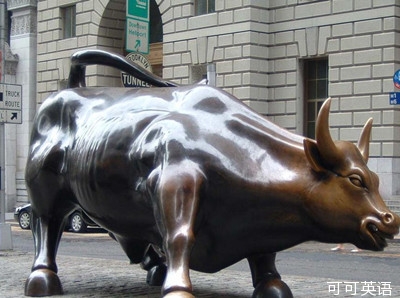Business Books; Book Review; Wall Street analysis; In need of therapy;
商業評論;書評;華爾街分析;尋醫問藥;
Exile on Wall Street: One Analyst's Fight to Save the Big Banks from Themselves. By Mike Mayo.
《流放華爾街》:一個財務分析師為拯救作繭自縛的大銀行而戰斗的故事。邁克·梅奧著。
Mike Mayo likes to ask blunt questions about issues that no one else will touch. To some, his queries are sparklers that light up dreary quarterly earnings calls between the heads of major banks and financial analysts; to others, they come from nowhere, rockets that bring down banking's high-fliers.
邁克·梅奧喜歡追問一些尖銳的、他人不愿去觸碰的問題。在一些人看來,他的質疑就像照亮黑暗角落的焰火,使大銀行的高管和分析師們關于季度收益的枯燥討論引起關注;對另外一些人來說,他的問題就像憑空冒出來的火箭炮,一下子就能把金融業的強人掀翻在地。

Mr Mayo is a well-known bank analyst who currently works for Crédit Agricole Securities USA. He has been a star attraction at half a dozen firms, is beloved by the media, followed by clients, and loathed by whatever institution happens to have earned his derision. This approach has cost him a succession of jobs, but it has not stopped him from having a successful career. There are many reasons for this. Mr Mayo hates being criticised, but has few reservations about criticising others. He has a deep belief in capitalism, but holds many of its leading practitioners in contempt; J.P. Morgan's Jamie Dimon is almost alone in drawing praise. He writhes if he feels his employers are disloyal, yet shows little loyalty himself, seemingly always on the prowl for a better opportunity.
梅奧是位名氣了得的金融分析師,現在就職于法國農信銀行美國分行,他在工作過的六七家公司都是風云人物。媒體青睞他,客戶追隨他,不幸被其奚落的機構痛恨他。雖然出名的代價是工作換了一個又一個,但這仍無礙于他在事業上的成功。其原因有很多。梅奧討厭別人批評自己,但他批評起別人來卻毫不委婉;他對資本主義深信不疑,卻對很多大資本家嗤之以鼻。摩根大通的Jamie Dimon幾乎是唯一得到過他好評的人。他為員工是否對他忠心耿耿而糾結,自己卻頻頻跳槽,似乎總在找機會另謀高就。
Such qualities are vital in a profession where objectivity is important and constantly tested. For the friendly analyst there are gourmet meals, rides on private jets, subsidised nights at strip clubs and, with luck, a bigger slice of profits. By contrast, when in 1999 Mr Mayo issued a 1,000-page report, telling the industry he covered that the good times were over, the consequences were uncomfortable. The report made his reputation but cost him his job. In describing his struggles in the intervening years, he writes: “Large banks have enough clout to beat the living daylights out of anybody who gets in the way—politicians, the press, or analysts like me.”
對于一份重視并且不斷檢驗客觀真實性的職業來說,梅奧身上體現出來的素養還真是不可或缺的。那些八面玲瓏的分析師,吃有美味佳肴,行有私人飛機,去脫衣舞俱樂部快活有人給買單,運氣好時還能獲得一大筆分紅。相比之下,當梅奧于1999年發表了一份長達1000頁的報告,向金融界宣告好日子一去不復返的時候,他就沒那么好的待遇了。這份報告為他賺到了名氣,也讓他丟掉了工作。在描述這幾年的起起落落時,他寫道:“誰要是跟大銀行過不去—無論政客、記者還是我這樣的分析師,對方隨便活動一下就能讓你吃不了兜著走。”
Markets can be equally unkind. Some of his best calls, notably a persistent scepticism about Citigroup, took years to be proved right. If he had run his own fund, Mr Mayo says, he would have made a lot of money over time, but “I probably would have folded several times as well.” Sometimes, notably in the case of Lehman Brothers, his view proved too optimistic.
金融市場表現得同樣刻薄。梅奧曾作出過幾次非常出色的判斷,但這些判斷的準確性在幾年后才得到印證,其中最著名的例子要數他對花旗集團發出的質疑了。梅奧說,如果讓他操盤自己的基金,他會賺到大把大把的錢,“但也有可能虧得血本無歸。”有些時候,譬如在最為人熟知的雷曼兄弟破產一事上,他的觀點就過于樂觀了。
But why, overall, aren't the big financial firms, and the analysts who cover them, better at the job? Mr Mayo offers the usual reasons: corruption, lousy disclosure, ridiculous compensation packages for incompetent managers who are overseen by incompetent regulators, conflicts of interests that are little short of rife. All of this he illustrates with names and dates, a close-up view of venality that, by itself, makes “Exile on Wall Street” a story worth reading. Since the financial crisis, Mr Mayo's 1999 report has become the conventional wisdom. To create another stir, he may need to become positive.
然而,不管怎么說,金融巨頭和為他們代言的分析師們為何連本職工作都難以做好?梅奧給出了再平常不過的答案:腐敗,內幕交易,付給無能的經理們毫無道理可言的報酬,同樣無能的監管者,以及無處不在的利益沖突。梅奧在引述舉證時將當事人的姓名和事件發生的具體日期都寫進了書中,并以特寫方式聚焦那些貪贓枉法的現象,憑這點,《流放華爾街》這本書就值得一讀。自金融危機后,梅奧在1999年發布的報告已然成了一部寶書,如果想再次引起關注,他要多提一些建設性的意見才行。












